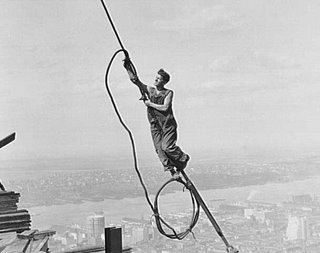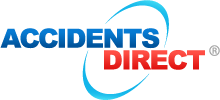 Today I take a look back at some of my favorite posts of 2009. In doing so, I’d also like to thank a few sites for the many readers they sent my way. These include Above the Law, Overlawyered, Law.com, and Simple Justice. There were many, many others, of course, but these sites were not only a generous source of inbound links, but between them represent a remarkable diversity of focus.
Today I take a look back at some of my favorite posts of 2009. In doing so, I’d also like to thank a few sites for the many readers they sent my way. These include Above the Law, Overlawyered, Law.com, and Simple Justice. There were many, many others, of course, but these sites were not only a generous source of inbound links, but between them represent a remarkable diversity of focus.
Generally speaking, posts that were more national in scope drew more readers. It is hardly surprising that my more New Yorkcentric posts didn’t make the cut, and you’ll see that reflected in the list below.
Below is smattering of favorites, based partly on page views, and partly on personal whim:
New York’s Anti-Solicitation Rule Allows For Ethics Laundering and Must Be Modified (1/22/09):
This posting discusses how the anti-solicitation rule can be circumvented and why it causes First Amendment problems in certain circumstances due to the breadth of its definition of solicitation. Indeed, under the rules, this very posting could qualify as an ethical violation as I use the US Airways Flight 1549 splash landing in the Hudson River as a case example on how the solicitations can occur. In fact, the ethics rule is so full of holes that it would sink in a true disaster…
Twitter and the Age of Information Overload (1/25/09):
The internet and the burgeoning social networks that it has spawned have made it possible to acquire information in ways that our parents never envisioned. Information now pours over the transom in an unprecedented deluge, being pushed and pulled in myriad ways.
But at some point I need to stem this tide…
Buffalo Plane Crash WILL Test New York’s New Anti-Solicitation Rules (2/13/09)
When I wrote three weeks ago about the possibility of the Hudson River splash landing testing New York’s 30-day anti-solicitation rules for attorneys, I did it with a question mark and with one eye firmly on the fact that it ended very well for the people on board the plane. It even ended well for the bar, as I found only one firm that appeared to violate the ethics rule. It also led me to explore, while the Second Circuit considered the issues of New York’s new rules, the myriad ways that ethics laundering can take place with lawyers hiring attorney search services to solicit, or running “articles” on their web sites about the crash.
I didn’t expect to write again so soon on the subject, but today’s horror in Buffalo with Colgan Air / Continental Flight 3407 crashing and killing 50 people will bring the subject of attorney ethics and the 30-day anti-solicitation rule right back to the forefront…
Do Attorney Anti-Solicitation Rules Work? (A Brief Analysis of Three Disasters) (2/26/09):
The ads are gone. All of them. In the wake of the crash of Continental 3407 near Buffalo I tracked seven different law firms using Google Adwords to advertise for victims, and every ad has now disappeared. …
So here is a quick and dirty analysis as to whether or not attorney anti-solicitation rules were the reason, based on three recent disasters…
New York’s No-Fault Mess (Do Our Judges Want Doctors To Go To Law School?) (3/5/09):
New York’s No-Fault law is out of control. It seems to have reached the point where judges are almost demanding one of two things from injured patients: That their doctors get legal tutoring on how to write reports that will satisfy the judiciary, or alternatively, that injured patients seek treatment from only those doctors that already know how to write medical-legal reports…
The Cross-Examination of Jim Cramer (3/13/09)
Around the country, Jon Stewart is winning plaudits for his devastating debate with Jim Cramer on The Daily Show, after a week of ripping CNBC up, down and sideways for their utter failure to see the Great Recession coming on, while claiming to be the experts of the financial world. Stewart is winning those plaudits (and perhaps an Emmy?) not just for the interview, but for a week-long skewering of financial talking heads who pretend to know the future of the markets.
But what I saw was not just good journalism — with the fake journalist giving a crushing lesson to the media on how it is supposed to done — but a devastating cross-examination…
As Seen on Oprah! (Kinda, Sorta, Almost) (3/17/09)
Oprah is big. I know this because my media maven wife tells me so. She has, like, a jillion fans and even more money. I’ve never actually seen her strut her stuff on her show, but a jillion fans (and even more money) can’t really be wrong, can they?
So I was flattered when Harpo Productions, Oprah’s production company, contacted me. It seems that one of her regular segments is with a Dr. Mehmet Oz, and he wanted to do a piece on medical mistakes.
So enter stage right, me…
Boston Marathon (Drinking Beer, Kissing Wellesley Women and Abstract Journeys) (4/21/09)
(Amtrak – northbound, April 18) Every adventure starts with a journey. As I leave my wife and kids behind I experience that rarest of moments — leaving town by myself when it isn’t for business. As the steel wheels rumble underneath me heading north toward Boston, I slip on the iPod and tune in Arlo…
Susan Boyle’s Voice, and the Lessons for Trial Attorneys (4/22/09)
If you haven’t heard of unemployed, 47-year old Susan Boyle taking the stage in a British talent shows and blowing the doors off the joint by now, you’ve probably been living under a rock. The expectations were as low as can be for the rather plain (some say homely) looking woman who, it turns out, had the voice of an angel.
And there is the lesson for trial lawyers…
Gloria Allred v. OctoMom (What’s a “Celebrity Lawyer?”) (5/4/09)
Now I understand what a matrimonial lawyer is. And I know what an entertainment lawyer is. And certainly what a personal injury lawyer is.
But what the hell is a “Celebrity Lawyer?” Do all celebrities have the same issues? Think about it. Criminal defense. Real estate. Securities. Immigration. Corporate work for those that have their own productions companies. Child welfare if you’re Britney Spears. Adoption if you’re Madonna…
The SCOTUS Nominee and the Tissue Box Test (5/12/09):
I want a nominee that knows what it’s like to have someone cry in their office. I want a nominee that has been there when someone tells them that their mother/father/brother/daughter was arrested/injured/killed and that they are desperate for help.
I want a nominee to know what it’s like to see real people — not political philosophies or corporate giants trying to add a few cents per share to their earnings — in their office in distress, and to represent them. I want a nominee that has experienced being the last, best hope for a downtrodden individual and the problem brought in the door. I want someone who knows what it’s like to be the underdog against corporate or government interests…
I Hate My Website (5/26/09):
It isn’t the style or functionality of my website that I hate, it’s my writing. The site is my firm’s electronic brochure and it’s designed so that folks in need of a personal injury attorney can find it and consider retaining my firm. But creating such a website is a real problem because of three conflicting concepts…
Did Sotomayor Violate NY Ethics Rules in Private Solo Practice with “& Associates” Name? (6/4/09)
Now Sotomayor was a prosecutor up until 1984 and started in April of that year with Pavia & Hartcourt, according to the questionnaire. That means she had her private law firm, likely a home office based on her modest description of the practice, that overlapped both her prosecutor’s position and her associate’s position at Pavia & Hartcourte. So the question here is not whether she had permission to have that private firm, as I suspect she must have, but rather, why she called it Sotomayor & Associates?
Did she have any associates when she was advertising herself in that manner?
Michael Jackson: The Mother of All Malpractice Suits? (6/26/09):
With Michael Jackson’s sudden death yesterday at 50 have come swirls of rumors about prescription medications he was taking for dancing related injuries. And if toxicology tests show over-medication being a substantial cause of death, that leads to the inevitable questions regarding potential medical malpractice as well as potential criminal liability.
So these are the issues and questions that would/should float about if those rumors prove accurate:
NYT: “Sotomayor & Associates” Becomes an Issue For Nominee and White House (7/7/09)
On June 4th Sonia Sotomayor released an extensive, completed questionnaire about her past to the Senate, and I picked up on the fact that her solo law firm “Sotomayor & Associates” didn’t have any actual associates. This raised an ethical issue, albeit a small one, because it was misleading to the public. The private firm overlapped both her time in the District Attorney’s office and her time with her next gig, Pavia & Harcourt.
And there my little post sat, relatively ignored. Until the Washington Times picked up on it in an editorial on June 20th. While I don’t agree with their premise that it was indicative of larger issues, it was nice that they at least gave attribution to me for finding the item.
And now today the ethical issue of “Sotomayor & Associates” lands in the New York Times...
“Sotomayor & Associates” Under Senate Investigation ( A preview of 6 potential issues) (7/9/09)
I was called yesterday by a member of the Senate Judiciary Committee’s minority’s legal staff regarding my postings on “Sotomayor & Associates” and potential ethics issues, and the subsequent New York Times article regarding the firm.
It probably comes as no surprise that Judge Sonia Sotomayor’s small, solo practice is being investigated. The committee is not, after all, a potted plant. And this little law firm that Judge Sotomayor ran out of her Brooklyn home from 1983-1986 was unknown to the world until she submitted answers to an extensive questionnaire on June 4th.
What follows are the five issues that I believe they are exploring, based upon my conversation (plus one more from TaxProf)…
10 Tips for Laid Off Lawyers (8/19/09)
It may be a long time before the legal field recovers from the massive layoffs from this past year. Some folks could be out of work longer than imagined, and it appears that some may need a bit of help on what to do. As you can see from this utterly miserable description of life as a cast-off lawyer coding documents in the basement of BigLaw firms for $28/hr. (via ATL), there are some people with big time degrees that are trapped into thinking that BigLaw is all the law that exists.
‘Taint so.
So, without further ado, here are 10 tips for lawyers without a job, from a guy who started from scratch…
Medical Malpractice (So You Think You Know What It Is?) (9/11/09)
So you think you know what medical malpractice is? Well, last week a panel of appellate judges in New York split on the subject in Friedman v. New York Hospital-Cornell Medical Center…
I’m a Super Lawyer! (Now What?) (10/8/09)
A relative told me something that I already knew: That I had been selected as a personal injury Super Lawyer. They knew because it had been published by the New York Times.
Yeah, well, kinda sorta. But not really. Super Lawyers is a supplement to the magazine; an advertising supplement. You don’t have to pay to be listed, you only pay if you want your name displayed prominently in a large box or page with a story about you that looks like news. Sort of an advertisement within the advertisement. I think the marketers call it an advertorial. I declined their offer to pony up big bucks for such an honor many months ago.
But now comes the other issue: What, exactly, do I do with this “honor”? Is this really an award to put on your wall or display on your website? Or is it a faux-award? A pseudo-faux award? A mockery of a pseudo-faux award? A mockery of a sham of….
Blawg Review #236 (The Bogeyman Cometh) (11/2/9):
The Bogeyman was pissed. And when The Bogeyman gets pissed, it’s probably wise to listen.
“Law bloggers are trying to steal my thunder,” he hissed, “It used to be that I had dibs on scaring the bejesus out of people. Now only 40% believe that my coterie of demons inhabits this earth. And I blame the lawyers. What are you guys trying to do to me?”…
New Spam Comment Policy for Law Firms (You Will Be Exposed) (11/5/09)
I’m getting tired of seeing spam in the comment area of my blog that comes from law firms and attorney search services. So if it comes in again I’m going to write a fresh post about them. I’ve done this a couple of times before but now I’m going to make a policy of it…
Outsourcing Marketing = Outsourcing Ethics (5 Problems With Outsourcing Attorney Marketing) (11/16/09)
Five months back there was a Metro train crash in Washington DC, and I watched from a distance to see who/how/where/when the web would be used by lawyers to find victims. And one of the things we saw was that one of the gazillion attorney search firms that infect the web was soliciting clients. Given that these search firms are agents of the lawyers, that raised the problem of attorneys using the web to solicit.
Thus was born this little formula in June: outsourcing marketing = outsourcing ethics….
Martindale–Hubbell Apologizes For Blog Spam; Suspends Spammer; Promises to Answer Questions (12/1/09)
Martindale–Hubbell has apologized for blog spam left on my site, using the comments area of my prior post for that purpose. MH has also agreed to publicly answer questions about the incident…
Tiger Woods: One Man Bar Exam (12/8/09)
Tiger Woods is providing a feast of legal issues as he swiftly morphs from choir boy to bad boy. And in the process he opens up a veritable bar exam full of questions.
Since at least half of lawyering is first identifying the potential problems, let’s take a peak inside the cans of worms he opened…
 The Second Circuit Court of Appeals needed to know what, exactly, an “elevation related injury” was and sent the question to New York’s high court for interpretation.
The Second Circuit Court of Appeals needed to know what, exactly, an “elevation related injury” was and sent the question to New York’s high court for interpretation.

